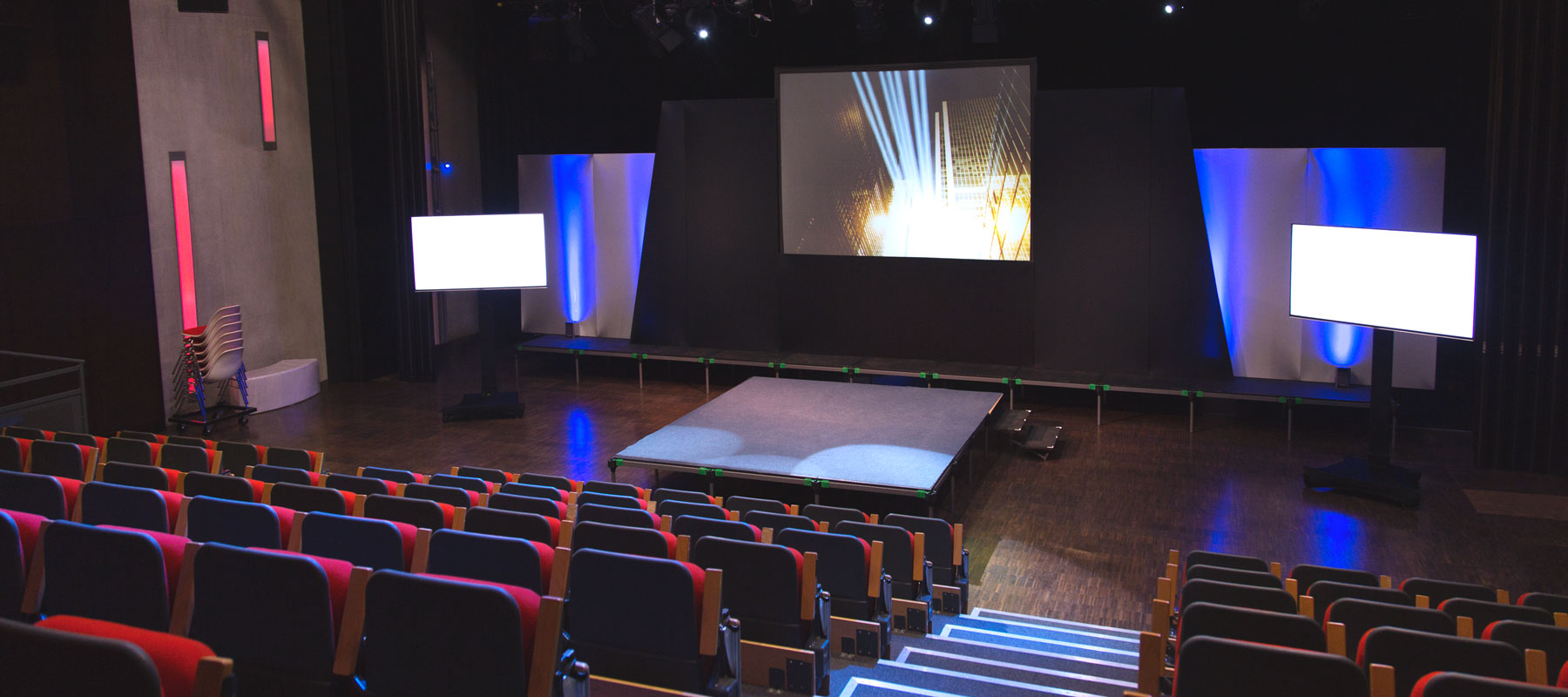Do You Know Where Your Next Event Will Be?

When organizing an event, you are responsible for making a lot of decisions. Choosing a venue is the one decision that will have the biggest impact on your event. The date of the event, attendees’ experience, catering options, and atmosphere, all are partly affected by which venue you select.
Sound overwhelming? We asked our in-house event team to share what they take into consideration when choosing an event venue. Here are three things to consider when shopping around to ensure you find the RIGHT venue to fit your needs.
1. THE RIGHT SIZE
Before you can start searching for the perfect venue, you need to be confident it fits your audience.
KNOW YOUR ATTENDEE COUNT
Knowing how many will be attending is imperative before searching for a venue. Why? Because attendance drives capacity. When reviewing capacity at a venue you must take into consideration more than just the attendees. In your final count you need to include the: installation crew, production team, caterers, security, or anyone else that may be in the building during your event.
BUILD IN EXTRA ROOM
Build in extra room when considering a venue. For instance, if you are searching for a venue to fit 300 and the location you’re reviewing has a capacity of 300, you may want to bypass that option and search for something in the 350-400 capacity range. This extra room will help support your clients’ last-minute additions such as press or special guests, and can also support additional staff for your team if needed.
2. THE RIGHT CONTRACT
Although when it comes to contracts most things are negotiable, it’s helpful to know what things to look for right off the bat before getting in too deep with a specific venue.
RED FLAGS
Cancellation and setup policies are two red flags to look for when reading contracts.
You want to ensure you are setting your event up for success and one of the ways to do so is to have adequate setup time. This may vary depending on your event size. For instance, a quaint dinner for 50 may only require 4-8 hours whereas a large event for 250 may require up to 24 hours to set up properly. When considering setup time try to avoid extra charges and overtime by selecting a weekday versus overnights or weekends.
Cancellation policies are another big red flag to look out for in contracts. Although it’s never ideal to imagine having to cancel your event, it unfortunately at times is something that needs to be done and if so, it’s something you don’t want to be penalized for.
THE FINE PRINT
Sometimes venues come fully loaded, with their own in-house AV teams, on-site catering, and even security. It’s important to read the fine print when considering a venue to confirm you have clearance to bring in your own vendors. Ideally, this will be listed in the contract for no additional charge but if not, it may be something to negotiate. Look out for anything stating you MUST exclusively use the in-house vendors. Although this could work for your event it’s always best to have options and it’s most likely non-negotiable.
3. COMMUNICATION. THE RIGHT WAY.
It should come as no surprise that communication is a huge factor when searching for event venues. Whether communicating with your vendors or the venue contact, upfront, clear, and concise communication will play a major role in event success.
SET EXPECTATIONS
Let’s be honest, it’s unlikely the sales representative you sealed the deal with will be your point of contact at the event. Be sure to ask upfront who will be your on-site partner. Reach out and introduce yourself as soon as the contract is signed, this will ensure you start off on the right foot and allow both partners to set expectations early on.
BE PERSISTENT
Chances are you’re not the venue rep’s only client and therefore it’s in your best interest to be persistent if you’re not receiving the answers upfront. It’s unlikely you’re not receiving a response on purpose and therefore being professional and persistent will likely help get the answers without seeming pushy.
Although we know a lot more goes into executing an event to its full potential, picking the right venue is a strong way to start. The next time you set off to venue select remember to look for the right size, the right contract, and communicate the right way. Happy hunting!
Share this article